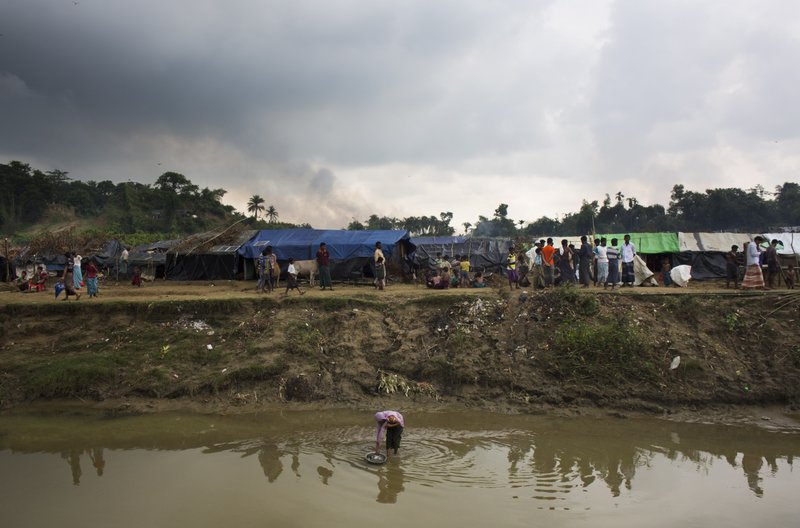DHAKA, Bangladesh -- Burma agreed with Bangladesh on Tuesday to resettle more than 6,000 Rohingya Muslims who have been stranded in a no man's land between the two countries, as plans for the repatriation of hundreds of thousands of others have been delayed over concerns for their safety if they return to Burma, officials said.
About 700,000 Rohingya Muslims have fled army-led violence in Buddhist-majority Burma since August and are living in refugee camps in Bangladesh. Some, however, became stranded at the Tombru border point after Burma reportedly began building bunkers and tried to force the refugees to leave and enter Bangladesh, which denied their entry.
Ali Hossain, the top government administrator in Cox's Bazar district, said officials from the countries agreed that Burma would identify the stranded refugees and then resettle them.
He said Burma invited Bangladeshi officials to visit the Tombru border point in Naikkhongchhari and talk to the refugees.
"There was a dispute about who will verify them. We said that is the duty of Myanmar as they have not entered Bangladesh territory," he said.
Bangladesh Relief and Refugee Commissioner Abul Kalam said they went to the site to "encourage the refugees" to go back voluntarily.
"The refugees told us they want to go back and get settled in their homes. We pressed the Myanmar authorities to create a congenial and safe atmosphere to resettle them," Kalam said by phone. "The Myanmar side has agreed to take that responsibility."
Burma is often called Myanmar, a name that military authorities adopted in 1989. Some nations, such as the United States and Britain, have refused to adopt the name change.
On Friday, Bangladesh Home Minister Asaduzzaman Khan gave a list of 8,032 Rohingya refugees to his Burma counterpart to begin repatriations. The list contained the members of 1,673 Rohingya families. Tuesday's decision was unrelated to that list.
The two countries originally agreed to begin repatriations last month, but they were delayed by concerns among aid workers and Rohingya that they would be forced to return and face unsafe conditions in Burma.
The August violence broke out after an underground insurgent group, the Arakan Rohingya Salvation Army, attacked security outposts in Rakhine. In retaliation, the military and Buddhist mobs began "clearance operations" against Rohingya.
Bangladesh says more than a million Rohingya are currently living in Bangladesh.
A Section on 02/21/2018
